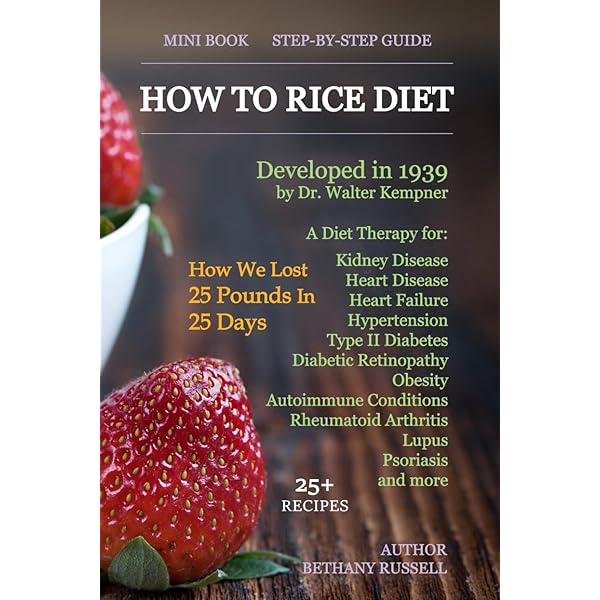
Apply Now


Understanding the Importance of a Muslim Diet in 2025
As we move through 2025, the concept of a Muslim diet has evolved significantly, rooted deeply in Islamic dietary laws and contemporary health trends. The emphasis on halal food not only fulfills religious obligations but also adheres to modern nutritional needs, highlighting the importance of a balanced diet. Halal certification ensures that the food consumed meets the specific guidelines laid out by Islamic teachings, facilitating a connection between spirituality and food. This article aims to explore effective ways to optimize your Muslim diet, focusing on maintaining a healthy lifestyle that aligns with Islamic principles. We will delve into various aspects of dietary choices, including permissible foods, halal meat options, and the significance of mindful eating. By combining traditional practices with modern nutritional guidance, we can create meal plans that are both fulfilling and spiritually nourishing. Understanding dietary restrictions is essential for making educated food choices. Whether you are navigating communal eating events or planning family meals during festivities, being aware of what constitutes halal will greatly enhance your dining experience. The following sections will provide insights into practical applications of these principles, enriching your approach to food in 2025.Navigating Islamic Dietary Laws and Halal Food
Building on our introduction, it’s essential to comprehend the Islamic dietary laws, which dictate what is considered halal, or permissible. These laws encompass all aspects of food sourcing, preparation, and consumption. The core tenets focus on the avoidance of haram (forbidden) substances, such as pork and alcohol.Comprehending Halal Certification
Halal certification plays a pivotal role in ensuring that food meets Islamic standards. Various organizations worldwide offer certification to halal food producers, evaluating everything from processing methods to sourcing. As a consumer, seeking halal-certified products, especially meats, is crucial for adhering to dietary laws. In 2025, many halal supermarkets and restaurants are likely to provide transparent labeling, empowering consumers to make informed choices.Permissible Foods in Islam
When optimizing a Muslim diet, it’s vital to understand which foods are permissible. The primary focus should be on whole, nutrient-rich foods that support health and wellness. Common staples include grains, fruits, vegetables, dairy, and halal meats. This diversity allows for balanced meals and a variety of nutritional benefits. Awareness of dietary restrictions ensures one can engage in food rituals without compromising health.Ethical Eating in Islam
The principles of ethical eating extend beyond mere dietary restrictions. Particularly in 2025, there's a growing emphasis on responsible sourcing and sustainability. Ethical food choices align with spiritual beliefs, reinforcing the connection between food and faith. This includes choosing locally sourced ingredients and supporting halal-certified local businesses, fostering community relationships and environmental consciousness.Healthy Meal Planning for Muslim Families
With a firm understanding of dietary laws, meal planning becomes essential for maintaining a healthy Muslim diet. By preparing meals thoughtfully, families can ensure nutritional needs are met while honoring cultural traditions.Creating Balanced Meals
When planning meals, aiming for a balanced diet is vital. This includes a variety of food groups—proteins, carbohydrates, healthy fats, and plenty of fruits and vegetables. Incorporating halal meat, legumes, and traditional cuisine will not only fulfill dietary requirements but also preserve cultural identity. Aim for meals that are not just filling but nourishing, incorporating health tips that promote a balanced lifestyle.Mindful Eating Practices
Mindful eating encourages a deeper connection between spirituality and food. It involves savoring each bite and appreciating the meal's origin, which can enhance the eating experience. Practicing gratitude before meals, through prayers or reflections, connects the act of eating to spiritual fulfillment. This mindful approach fosters healthier eating habits, allowing families to bond over meals while being conscious of their choices.Incorporating Traditional Recipes
Traditional Muslim recipes often feature nutrient-dense ingredients that are both delicious and wholesome. By updating these recipes to reflect modern dietary needs—like reducing sugar in sweets or utilizing whole grains—families can enjoy healthy variations of classic dishes. Furthermore, sharing these recipes during community gatherings reinforces bonds and highlights the importance of family and food.Fasting During Ramadan: A Spiritual and Nutritional Guide
Fasting during Ramadan is a pivotal aspect of the Muslim diet, presenting an opportunity for both spiritual reflection and health benefits. Understanding how to approach fasting wisely can enhance the experience and support overall wellness.Health Benefits of Fasting
Fasting is not only a religious obligation but also offers numerous health benefits. It can lead to improved metabolism, weight management, and enhanced mental clarity. In 2025, more studies are likely to support the idea that fasting can have positive effects on the body, encouraging a holistic approach to spirituality and health.Meal Planning for Ramadan
Successful fasting requires careful meal planning, especially for suhoor (pre-dawn meal) and iftar (meal to break the fast). These meals should be balanced, incorporating hydration, proteins, and complex carbohydrates to sustain energy levels throughout the day. Healthy snacks, such as dates and fresh fruits, can be excellent options to break the fast, providing immediate energy and nutrients.Family Observance and Community Gatherings
Ramadan is a time for communal eating and family gatherings. Incorporating communal meals not only fulfills dietary guidelines but also enhances bonds within the community. Sharing iftar meals with friends and family reinforces the social aspects of dining and allows for a diverse range of dishes to be enjoyed together.Exploring Halal Snacks and Vegetarian Options
In today’s fast-paced world, having quick and easy snack options that adhere to halal guidelines is crucial. The rise in vegetarian eating is also noteworthy, with many Muslims exploring plant-based halal options.Healthy Halal Snacks
Snacking can be part of a healthy diet when opting for the right choices. Nutritious halal snacks, such as nuts, yogurt, and fresh fruits, provide necessary energy without compromising dietary requirements. As consumers look for convenience in 2025, the availability of halal snack options in supermarkets and online will continue to grow, making it easier to maintain a healthy lifestyle.Vegetarian and Plant-Based Halal Meals
The demand for vegetarian options is increasing within the Muslim community, leading to a more inclusive culinary landscape. Many traditional Muslim dishes can be adapted to cater to vegetarian preferences, making use of hearty legumes, grains, and vegetables. Emphasizing these plant-based meals can support health and reflect a commitment to sustainable eating practices.Common Dietary Practices Among Muslims
Understanding common dietary practices can enrich personal meal planning. Many Muslims prioritize locally sourced ingredients, focusing on ethical food choices. Through exploration of community food festivals and cultural exchanges, individuals can learn more about the culinary diversity within the Muslim diet, enhancing their food experiences.Culinary Influences and Educational Resources for Muslims
Cultivating knowledge about food and its cultural significance is vital for enriching the Muslim diet. Education around food practices can enhance both cooking and eating experiences.The Role of Food Blogs and Online Resources
In today’s digital age, food blogs and online resources offer valuable insights into halal cooking and nutrition. These platforms provide simple recipes, nutritional advice, and practical cooking techniques, making it easier for individuals and families to implement healthy eating habits into their lives.Participating in Food Education Programs
Engaging in food education programs can promote a deeper understanding of dietary requirements and cooking techniques. Many communities offer courses focusing on Islamic nutrition and healthy meal preparation, which can be particularly beneficial for young Muslims. These programs often emphasize sustainability and ethical sourcing, aligning with modern dietary trends.Culinary Diversity and Community Needs
Exploring the culinary traditions of diverse Muslim cultures enriches the modern Muslim diet. By embracing this diversity, individuals not only enjoy a broader range of flavors and nutrition but also appreciate the rich tapestry of cultural identity woven into the food. Community needs drive the evolution of dietary practices, allowing for shared experiences that reflect various cultural influences.
